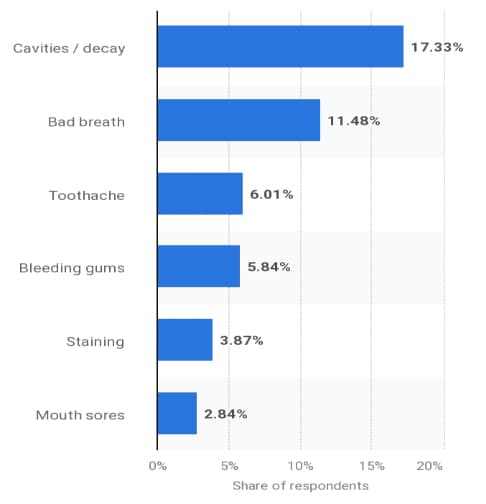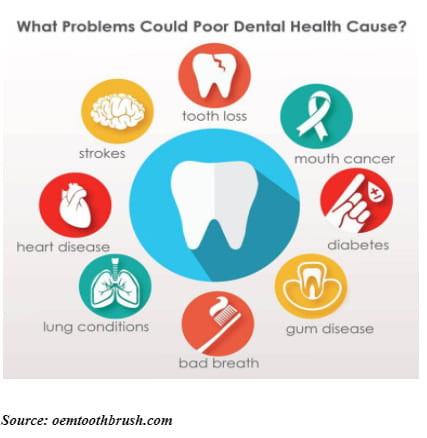
For optimum oral health, maintaining good dental hygiene and scheduling routine dental appointments are essential. Unfortunately, many people disregard these necessary procedures for a variety of causes. Based on sources, more than 50% of Indians with dental health problems take generic medication or advice from unreliable sources other than a dentist.
As a result, this blog is our modest attempt to shed light on the consequences of neglecting advanced dental care and what makes it a priority. Moreover, by exploring the potential outcomes of avoiding oral health maintenance, we hope to motivate readers to prioritise regular dental checkups.
The best options to learn about the importance of routine oral care in the modern environment are to enrol in undergraduate BDS and graduate MDS programmes. However, Mansarovar Dental College, the best dental hospital and college in India, offers these programmes to give students a special opportunity of getting involved in multiple Research & Development projects. A few highlights of these courses are:
Here are the BDS course details:
| Course Name | Duration | Minimum Requirement |
|---|---|---|
| Bachelor of Dental Surgery | 4+1 year of compulsory internship | Applicants must receive a 50% overall average in Physics, Chemistry, and Biology in their 10+2 exam. |
| Master of Dental Surgery | 3 Years | Candidates shall complete a BDS programme from a DCI- approved institute with at least 50%. |
Also Read: Why is an MDS Degree Required After BDS?
According to the Ministry of Health and Family Welfare, between 60 to 80% of children have misaligned jaws, gaps between their teeth, and other serious dental issues. Moreover, between 85-90% of adults experience leading dental issues like:

As you know, the mouth serves as the entryway to your body's entire wellness, so skipping out on advanced dental care might affect your health more broadly than just your mouth. Following is a discussion of a few circumstances that may prompt you to reconsider seeking dentist care regularly:
The chance of getting numerous dental problems can greatly increase if dental care is neglected. Among the most prevalent disorders, which can range in severity from mild to severe, are gum disease and tooth decay which can lead to cavities, infections, and even tooth loss if untreated. Also, periodontitis, which develops from gingivitis, can cause gum recession, bone loss, and ultimately loose or missing teeth.
Dental disorders can cause terrible pain and agony if they are not treated right away. Additionally, problems like toothaches, sensitivity, and swollen gums can have a big influence on daily tasks like speaking and eating. Long-term pain can also cause sleep problems, mood swings, and a general decline in quality of life.
Since there is a strong correlation between oral health and general health, it is important to have the right dental care information to avoid negative consequences on other parts of the body. Additionally, having poor dental hygiene raises your chance of developing a number of systemic diseases like diabetes, cardiovascular disease, respiratory infections, and even pregnancy difficulties. Furthermore, gum disease bacteria can enter the circulation and contribute to the inflammation that can make these illnesses worse.

Although postponing or skipping oral care may first appear like a cost-saving move, it frequently results in higher costs overall. And, small problems that may have been readily fixed become complicated concerns that call for time-consuming and expensive treatments like dental implants, root canals, or periodontal surgery. Thus, missing out on regular checkups can lead to inadequate early detection of dental problems, making treatment more difficult and expensive in the long run.
Dental issues should never be ignored because they may cause social anxiety, low self-esteem, and other psychologically damaging symptoms. The quality of life as a whole might be diminished by this avoidance, which can also have a detrimental impact on interpersonal and professional relationships. Consequently, going to the dental best hospital for regular checkups can help you avoid this element in a big way.
Also Read: Is it Important to Visit a Dental Clinic Regularly?
Regular dental checkups and forming healthy habits like brushing and flossing are part of the preventative dental benefits. Some of its additional features include:
Missing a dental checkup can have major repercussions, such as a higher chance of oral disorders, discomfort, and pain, higher treatment expenses, and negative impacts on physical and mental health. Most significantly, people can safeguard their oral health, general health, and quality of life by using advanced dental care. Furthermore, keep in mind that when it comes to dental care, prevention is always advised.
The advanced dental care advice is as follows:
In India, the price of professional teeth whitening ranges from ₹7,000 to ₹20,000. But, the charges for teeth whitening procedures vary between dentists and localities.
Gingivitis, tooth decay, oral cancer, periodontal disease, and dental crowding are among the widespread issues. In addition to having a bad effect on someone's self-esteem, they can also cause pain and discomfort and limit a person's ability to eat.
You can become a Dental Surgeon, Clinical Research Associate, Dental Cosmetologist, etc., with a BDS degree from the Mansarovar Dental College. Additionally, you may anticipate earning about INR 2.9 LPA with this degree.
Some frequent dental issues today are stained teeth, chipped teeth, cavities, impacted teeth, cracked teeth, sensitivity to cold, etc. And, if discovered at an early stage, the application of advanced dental care can substantially prevent them.